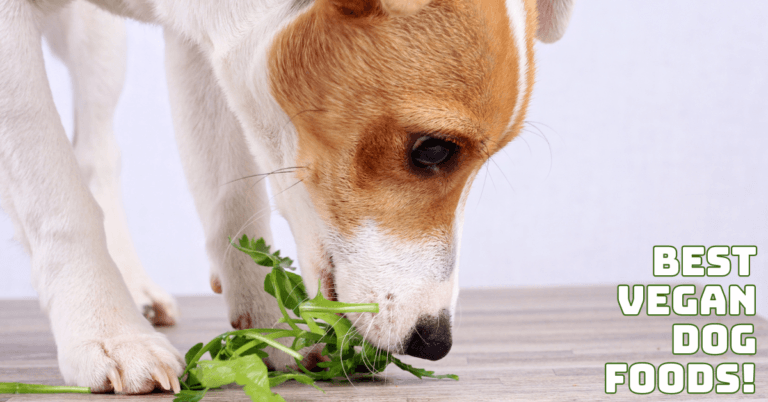Top Vegan Probiotic Food For A Healthy Gut
Top Vegan Probiotic Food For A Healthy Gut
Vegan probiotic food provides a natural means of promoting immunity and supporting digestion, both of which are essential for overall well-being.
Live bacteria called probiotics support a healthy gut microbiota, which is necessary for optimum health. While many associate probiotics with dairy, plenty of plant-based options are packed with these beneficial microbes.
This article will explore the top vegan probiotic food that enhances gut health and fit seamlessly into a cruelty-free lifestyle.
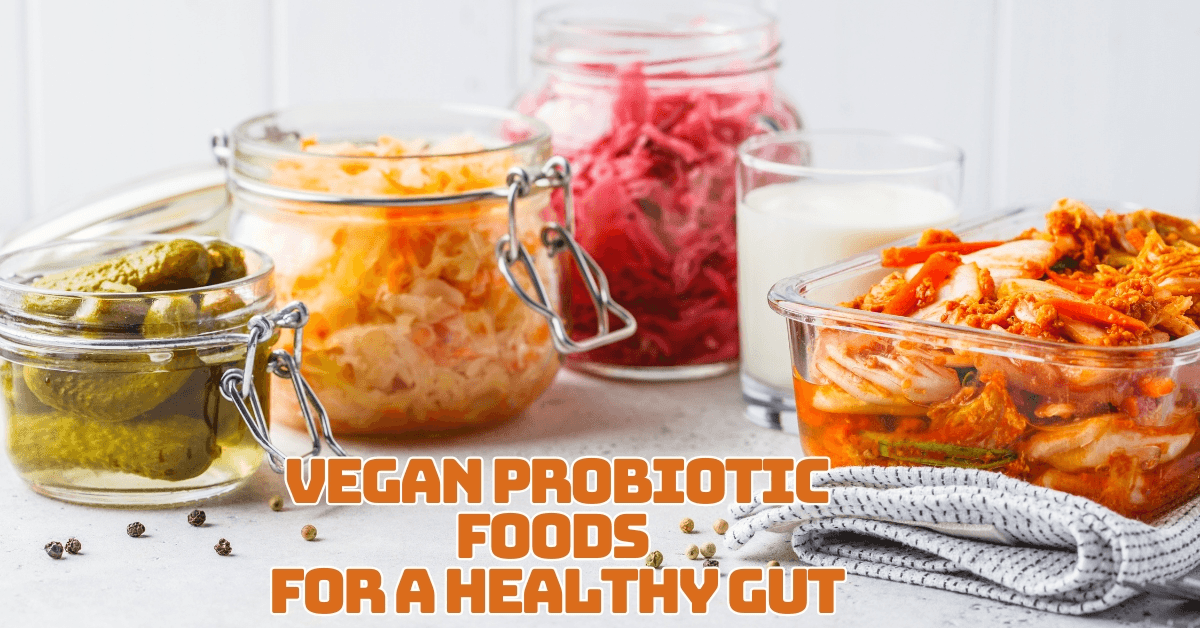
What Are Probiotics?
Probiotics are live microorganisms, primarily bacteria and yeast that provide health benefits when consumed adequately.
Often referred to as “friendly” or “good” bacteria, they work to maintain the gut microbiome formation of dangerous bacteria. Numerous body processes, such as digestion, nutrition absorption, and immunological support, depend on this balance.
Fermented food such as yogurt, sauerkraut, kimchi, and some pickles naturally contain probiotics. While traditionally linked to dairy products, plant-based sources are rich in probiotics, such as miso, tempeh, kombucha, and fermented vegetables. This food contains strains like Lactobacillus and Bifidobacterium, which are widely studied for their health benefits.
In addition to aiding digestion, probiotics may reduce inflammation, improve mental health, and help prevent conditions like irritable bowel syndrome (IBS).
They also strengthen the gut lining, preventing harmful bacteria from entering the bloodstream. Though beneficial, consuming probiotics regularly is important as they don't permanently colonize the gut.
Pairing them with prebiotic-rich food, like onions or garlic, helps them thrive. Incorporating probiotics into your diet can enhance overall health by supporting a balanced, resilient gut.
Vegan Probiotic Food
Vegan probiotic food is rich in beneficial bacteria that promote a healthy gut without using animal products. Here are some top options:
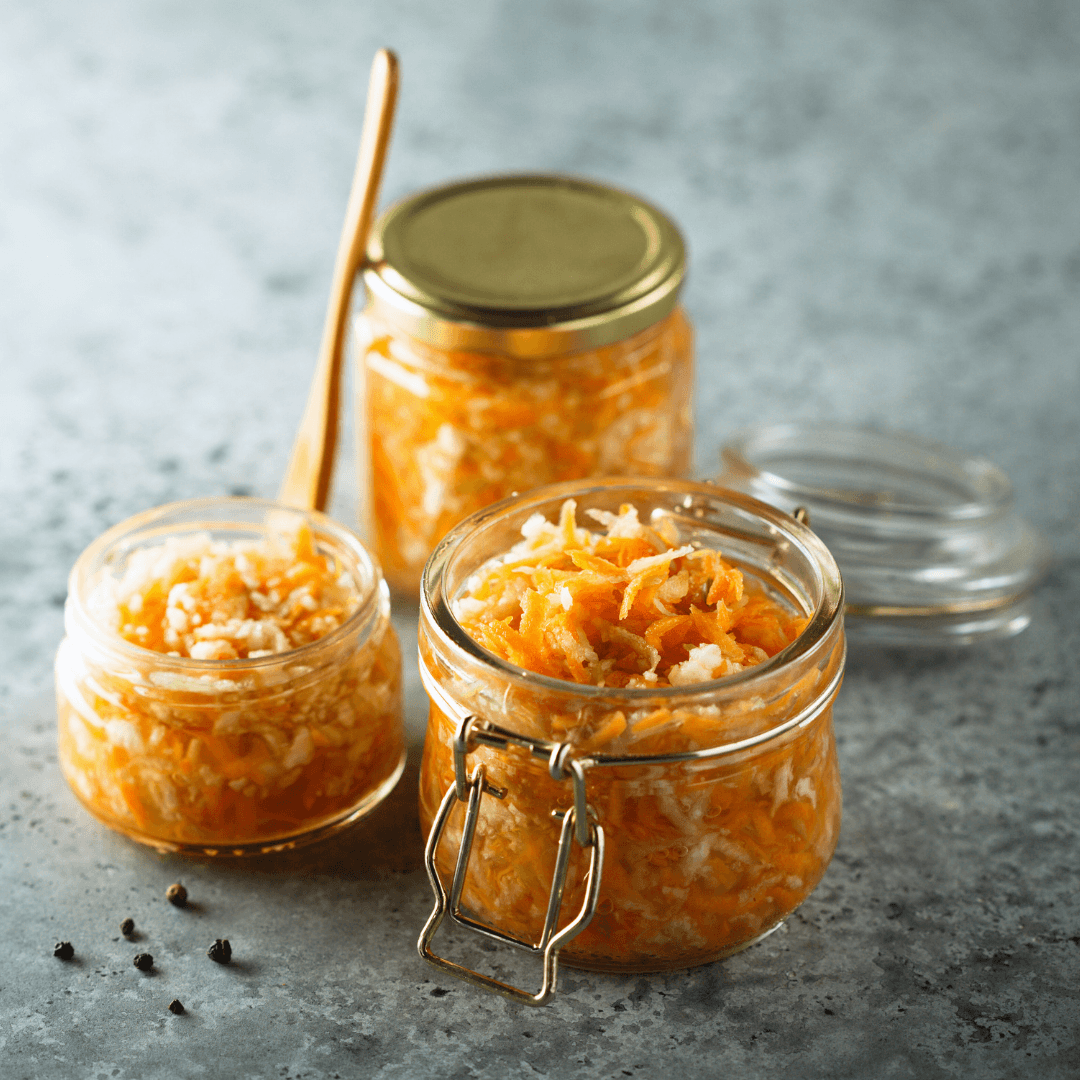
1. Sauerkraut
Sauerkraut is made by fermenting finely shredded cabbage, resulting in a tangy and crunchy condiment. Sauerkraut is packed with probiotics that enhance digestion and support gut health.
Furthermore, vitamins C and K, which support immune system function and general health, and fibre, which encourages regular bowel movements, are both found in good amounts in sauerkraut. Its versatility makes it a delicious addition to salads, sandwiches, or a side dish.

2. Kimchi
Kimchi is a spicy, fermented Korean dish typically made from vegetables like cabbage and radish. This flavourful food contains beneficial gut-friendly bacteria, particularly Lactobacillus, which supports healthy digestion.
Fermentation enhances nutrient content, providing essential vitamins A, C, and B-complex. Regular kimchi consumption can boost the immune system, improve gut health, and introduce exciting flavours to various meals, making them nutritious and delicious.
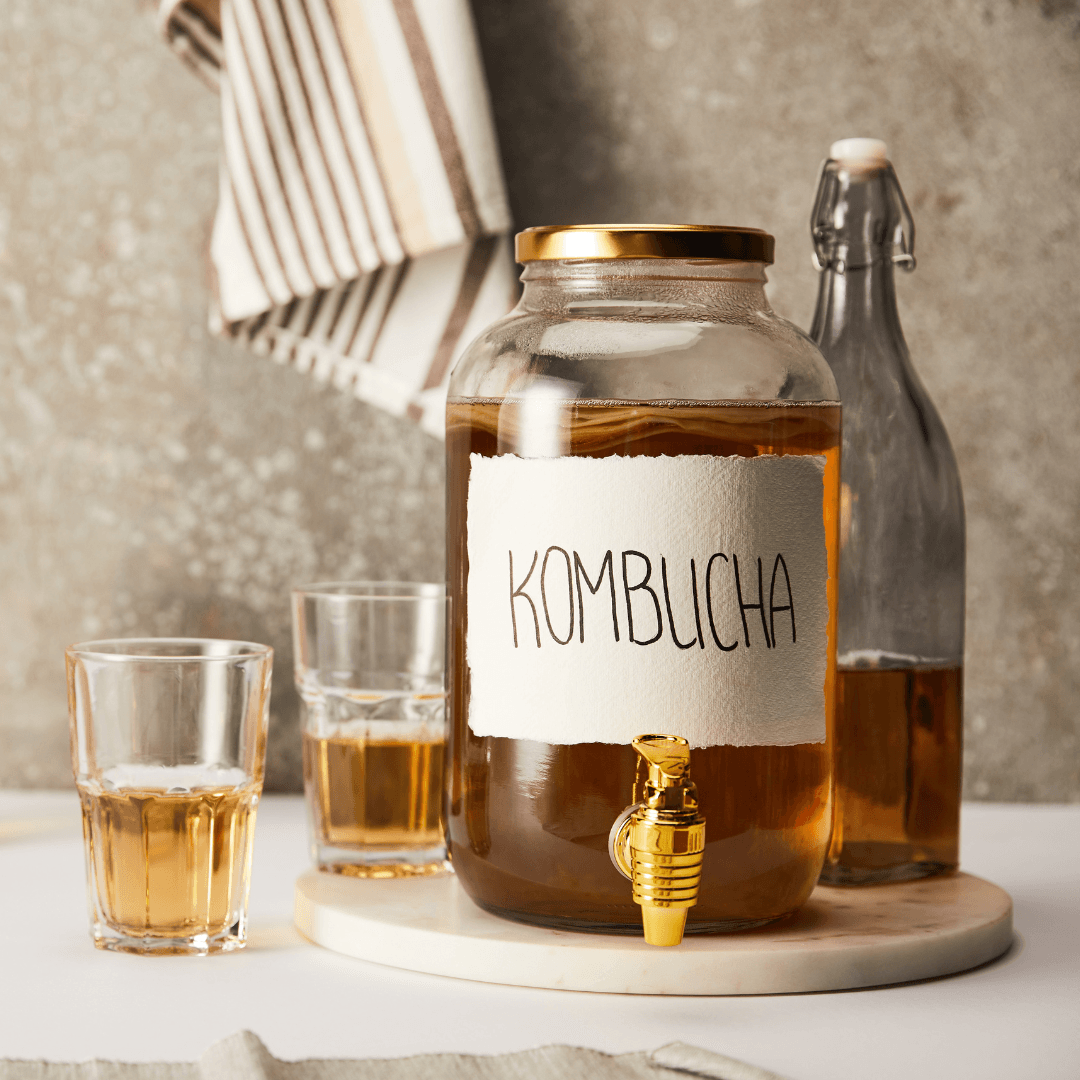
3. Kombucha
A symbiotic culture of bacteria and yeast (SCOBY) is added to sweetened tea to generate kombucha, a fermented beverage.
This fizzy beverage is rich in probiotics, antioxidants, and organic acids that work together to support digestive health and enhance detoxification.
Regular kombucha consumption can improve gut microbiome balance, boost energy levels, and promote well-being. It benefits the gut while serving as a pleasant substitute for sugary drinks.
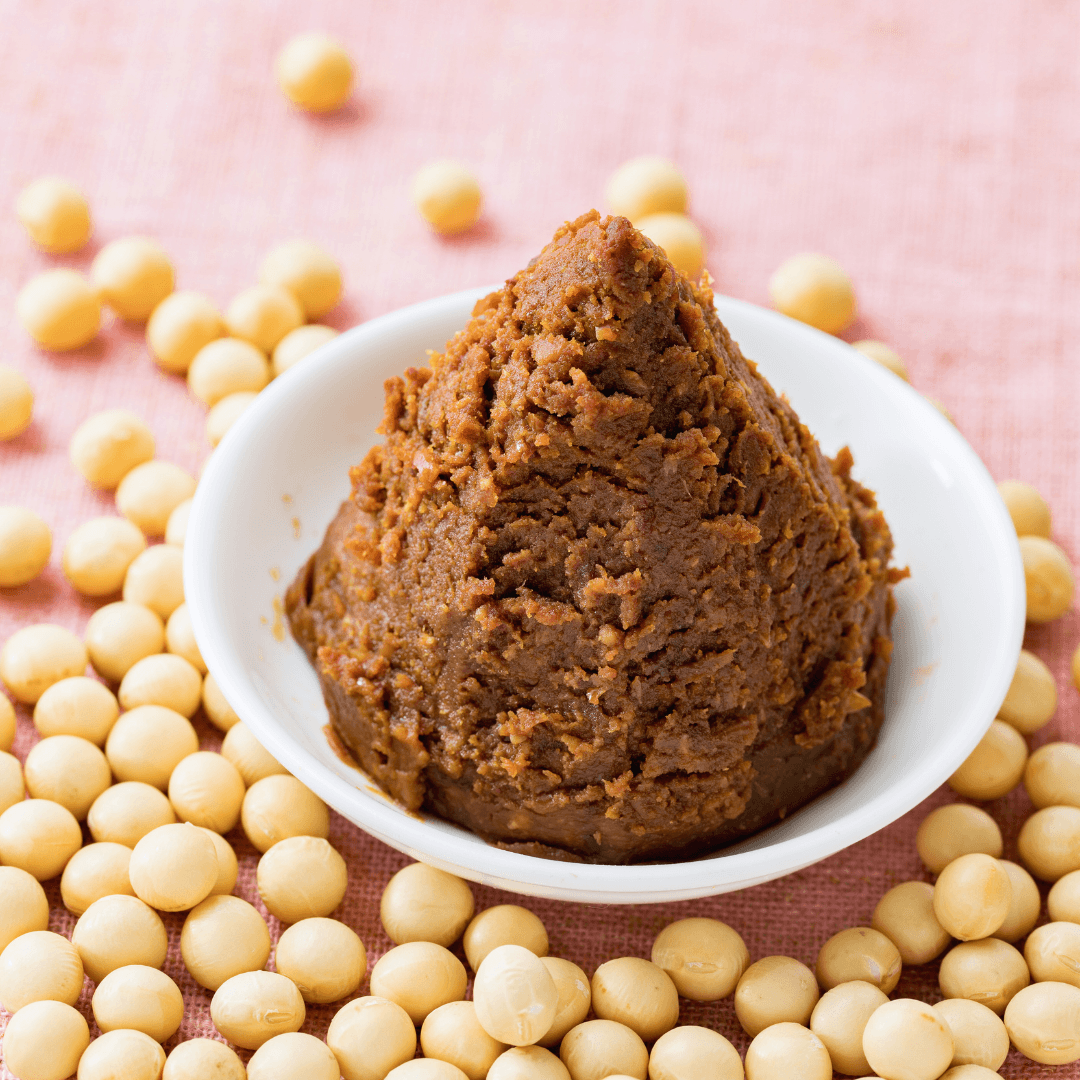
4. Miso
Miso is a fermented paste made from soybeans, salt, and koji—a fungus that promotes fermentation. This savoury, umami-rich ingredient is a probiotic powerhouse contributing to better digestion and gut health.
Miso is also a great source of essential minerals, including zinc and manganese, which support various bodily functions. It is versatile and can be used in soups, sauces, and marinades, adding depth of flavour to dishes.
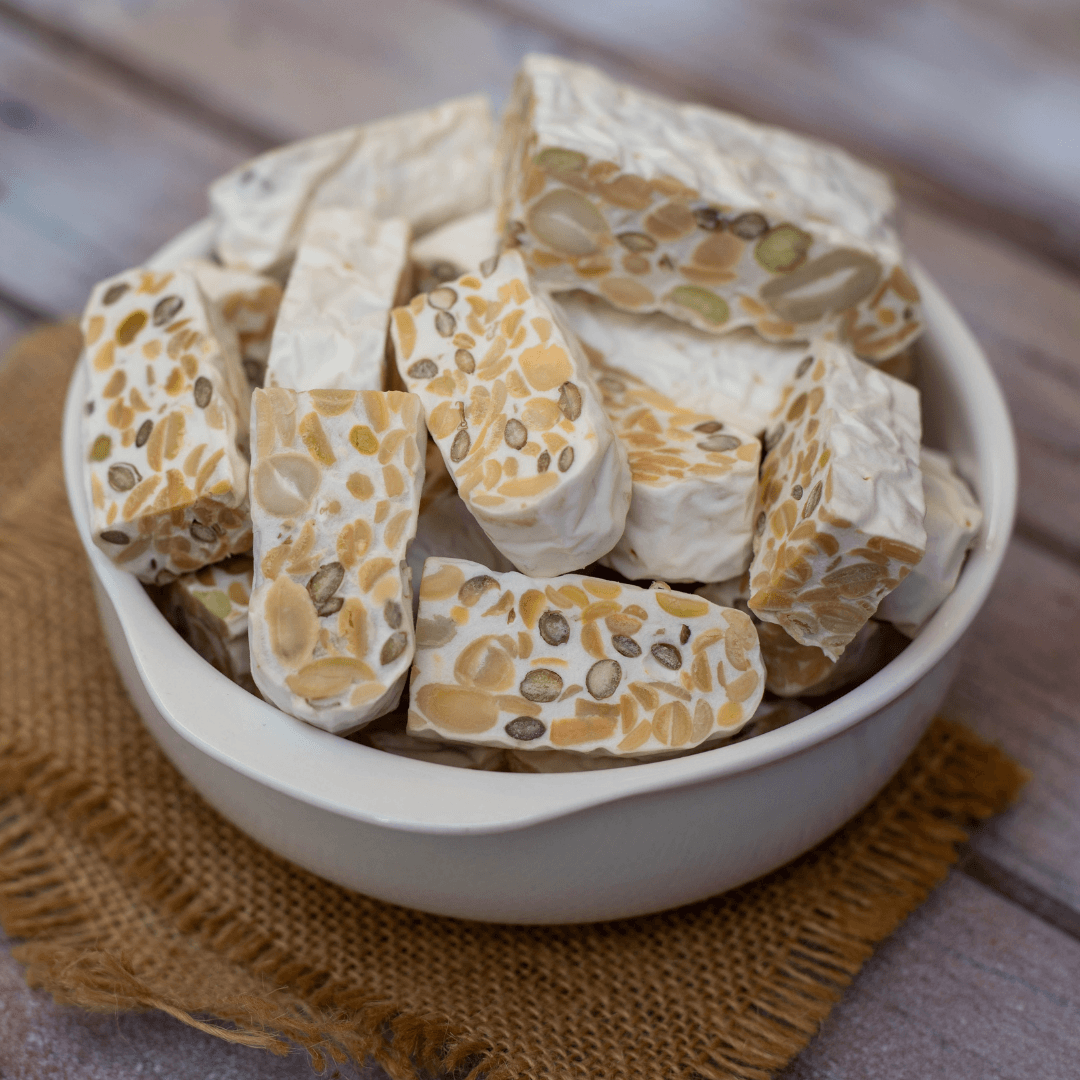
5. Tempeh
Tempeh is a popular Indonesian dish prepared from fermented soybeans. Tempeh is a rich source of probiotics and high-quality plant protein.
The fermentation process enhances its digestibility, making it easier for the body to absorb nutrients. Tempeh adds a wonderful texture and nutty taste to stir-fries, salads, and sandwiches. Its probiotic content supports gut health, making it a nutritious choice for vegan and vegetarian diets.
6. Pickled Vegetables
Fermented vegetables, such as cucumbers, carrots, and beets, undergo lacto-fermentation, where natural bacteria convert sugars into lactic acid.
This process creates probiotics that promote gut health while preserving the vegetables, resulting in a tangy and crunchy addition to meals.
Pickled vegetables provide many vitamins and minerals, taste good, and are good for you. They can enhance salads and sandwiches or serve as tasty snacks, supporting digestive health with every bite.
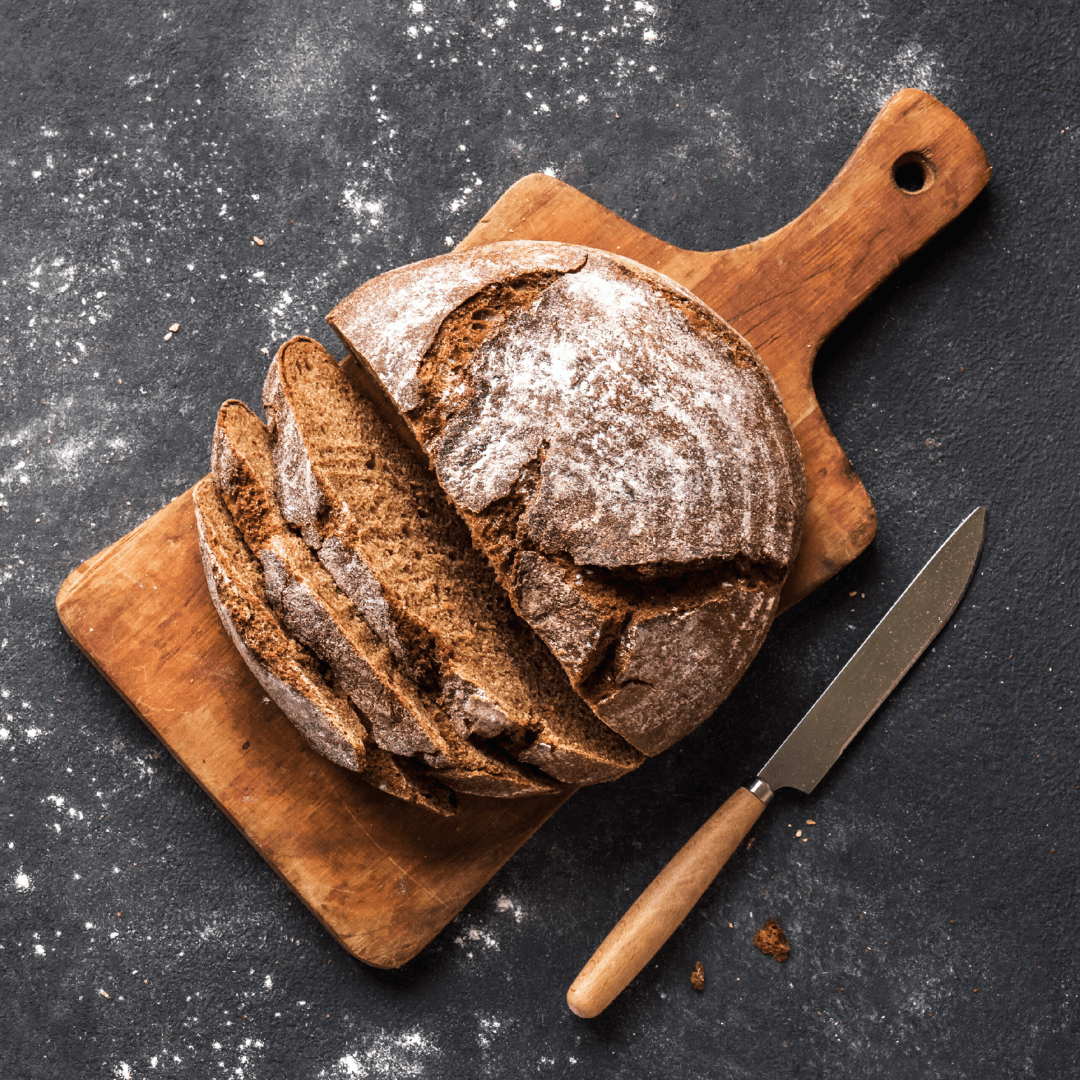
7. Sourdough Bread
Natural yeast and lactic acid bacteria ferment dough to create sourdough bread with a slightly tangy flavour.
The fermentation process in sourdough bread creates probiotics that support gut health and enhance the bread's digestibility compared to regular bread.
Sourdough also offers a good source of fibre, which aids digestion and promotes satiety. Enjoyed fresh or toasted, sourdough can be paired with various toppings, making it a nutritious and delicious choice.
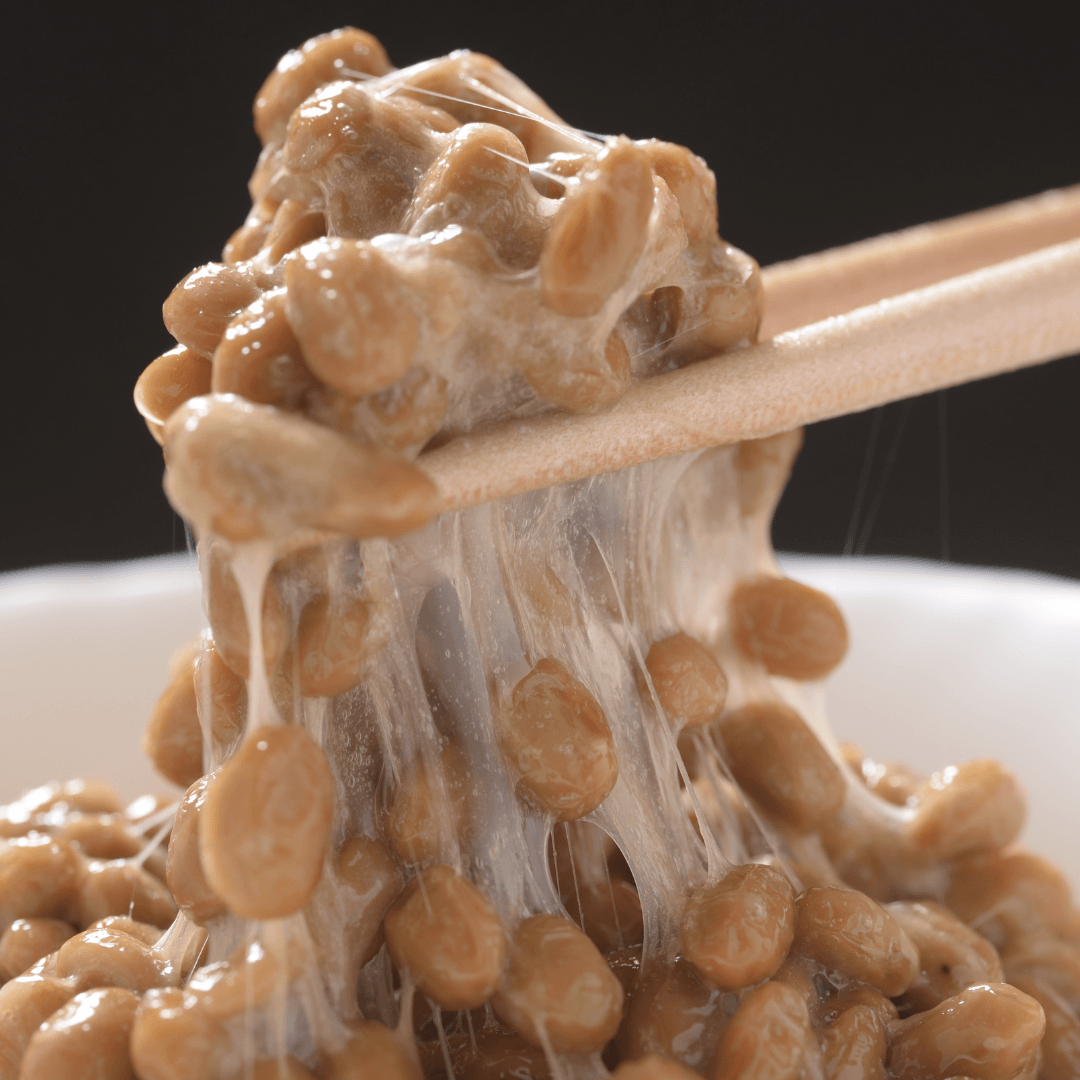
8. Natto
Natto is a traditional Japanese food made from fermented soybeans. It is notable for its strong flavour and sticky texture. It contains potent probiotics, particularly Bacillus subtilis, which support gut health and digestion.
Additionally, natto is rich in vitamin K2, essential for bone and heart health. Its unique flavour may take some getting used to, but it can be enjoyed with rice, in sushi, or as a flavourful topping for various dishes.
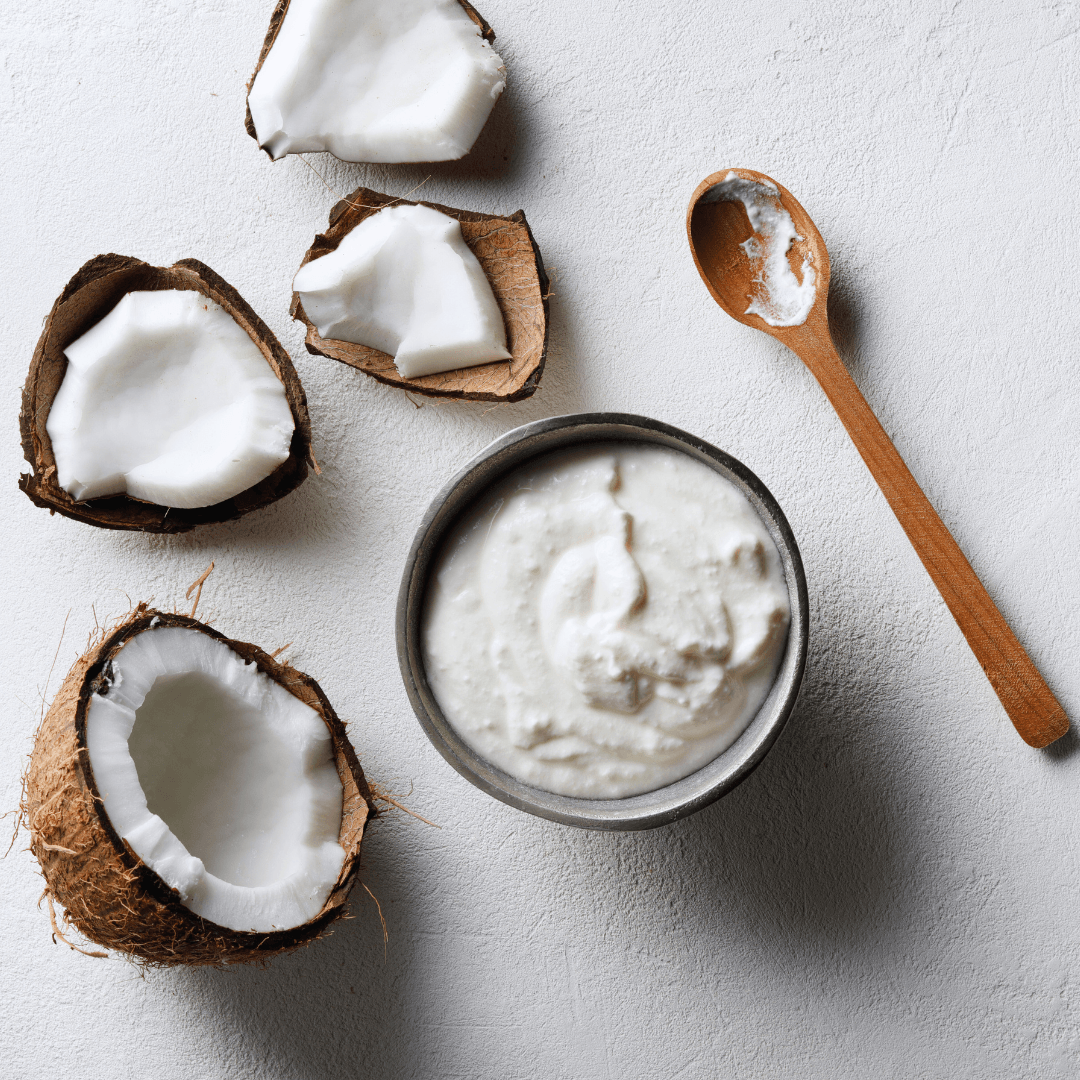
9. Vegan Yogurt
Non-dairy yogurts from almond, soy, or coconut milk are packed with live cultures, such as Lactobacillus, promoting a healthy gut.
These yogurts provide a creamy, nutritious snack or meal addition while supporting digestion and immune function. With various flavours available, vegan yogurt can be enjoyed on its own, in smoothies, or with toppings like fruits and granola, making it a delicious way to boost probiotic intake in a plant-based diet.
10. Water Kefir (Tipicos)
Water Kefir is a light, fizzy beverage from fermenting water, sugar, and kefir grains. It is rich in probiotics and offers a refreshing, dairy-free alternative to traditional kefir.
Water kefir helps balance the gut microbiome, supports digestion, and provides hydration. Its slightly sweet and tangy flavour makes it an enjoyable drink on its own or as a mixer in cocktails and smoothies, deliciously promoting gut health.
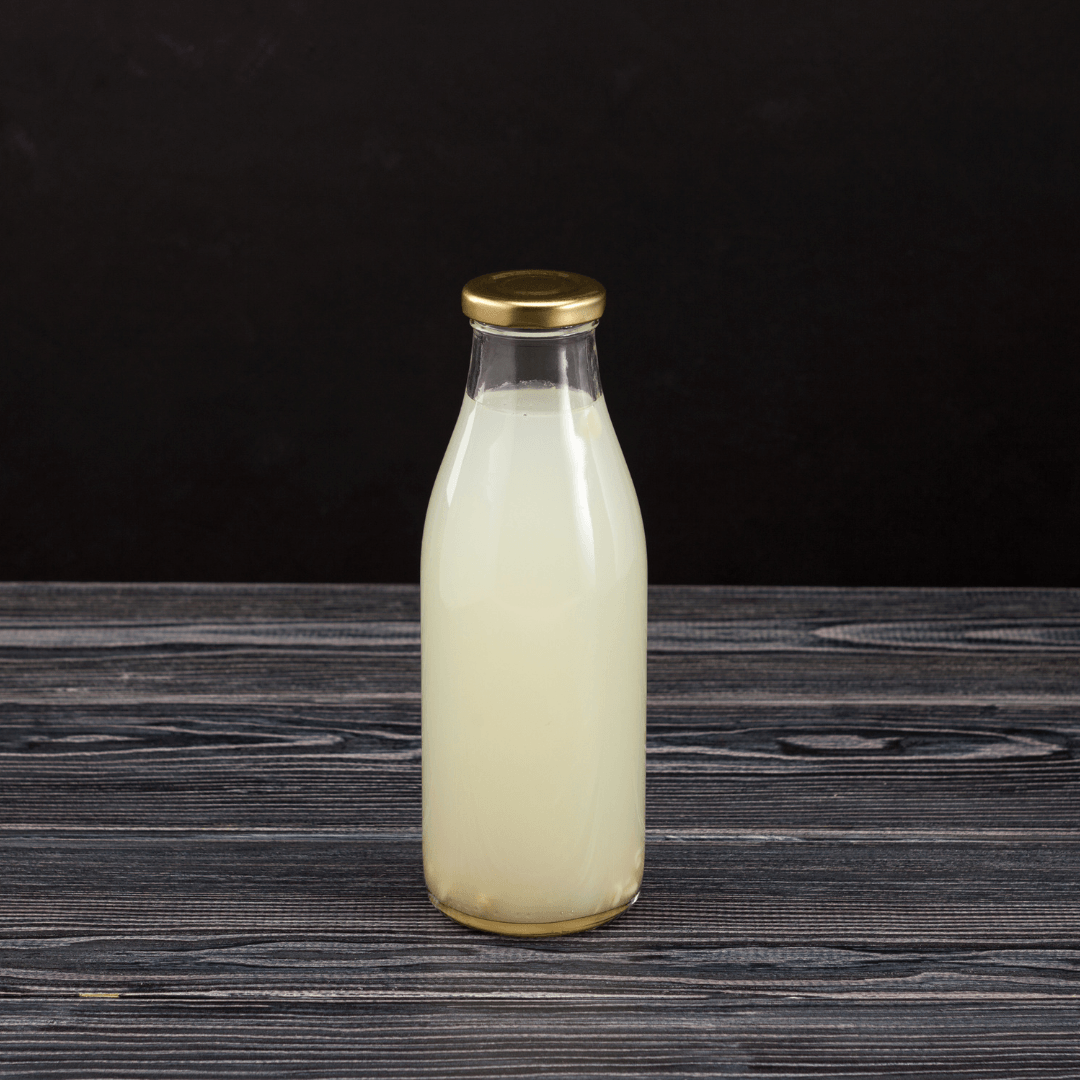
11. Rejuvelac
Rejuvelac is a fermented liquid made from sprouted grains like wheat or quinoa. This probiotic-rich drink offers enzymes and beneficial bacteria that aid digestion and support gut health.
Rejuvelac is a pleasant beverage that tastes slightly acidic. It can be used in smoothies and salad dressings. It's a flexible supplement that supports a healthy digestive tract and improves nutrient absorption in plant-based diets.
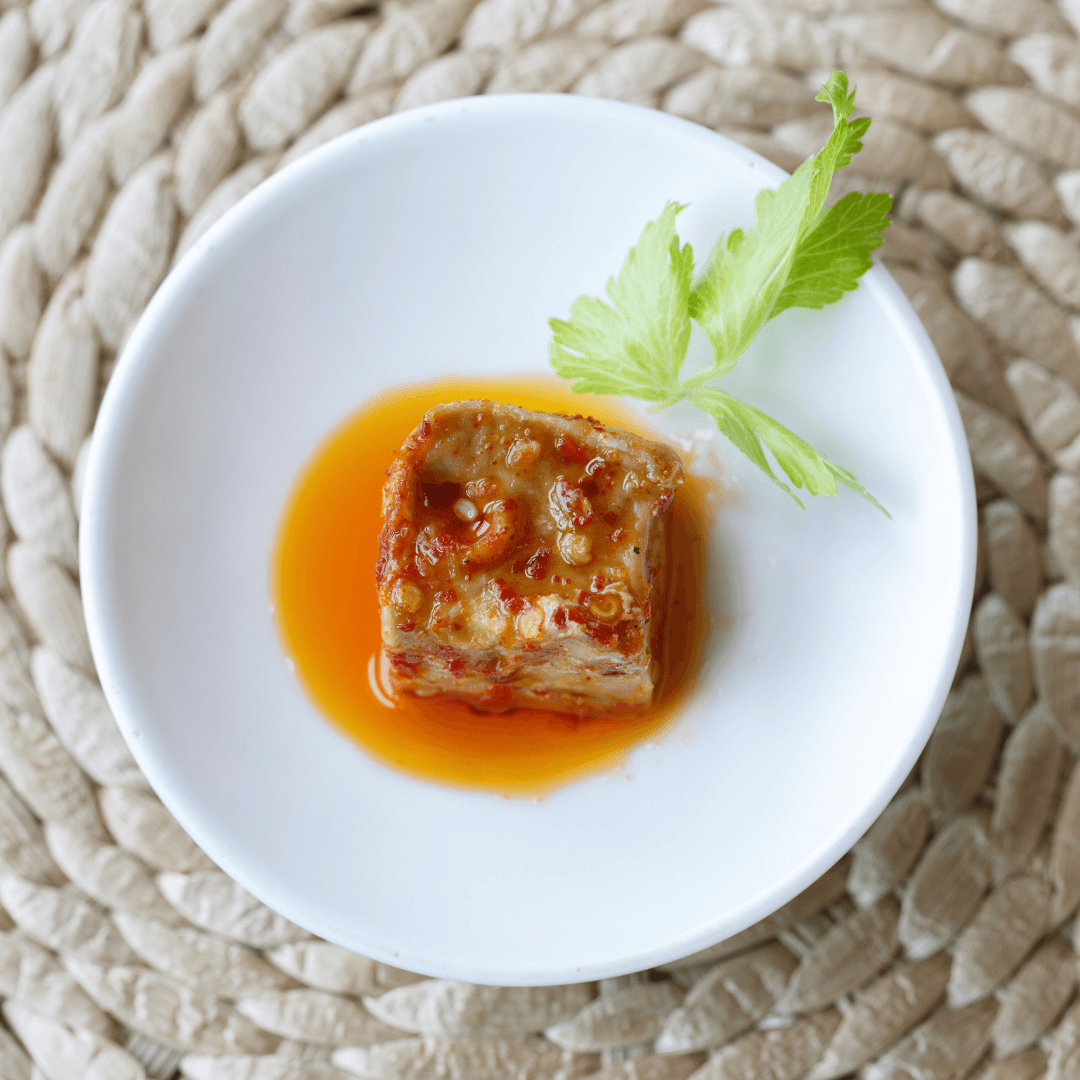
12. Fermented Tofu
Fermented tofu is a common ingredient in Asian cuisine. It is a rich source of probiotics and protein, and fermentation gives it a strong, tangy flavour that enhances various dishes.
Fermented tofu is packed with beneficial bacteria and promotes gut health while providing essential nutrients. It can be eaten independently or as an addition to stir-fried salads, making it a wholesome choice for vegan diets.
13. Fermented Pumpkin
Fermenting pumpkin with spices and salt creates a tangy side dish and enhances its nutritional profile. This process preserves the pumpkin, allowing it to be enjoyed over time.
Rich in fibre and vitamins, fermented pumpkin is versatile and gut-friendly. It can be added to salad sandwiches or enjoyed as a standalone snack.
14. Coconut Fermented Cream
Made from coconut milk and probiotic cultures, this dairy-free cream boasts a rich and creamy texture. It adds a tropical twist to desserts, smoothies, and breakfast bowls.
Besides its delicious taste, coconut fermented cream is packed with gut-friendly bacteria, supporting digestion and promoting a healthy microbiome, making it an excellent addition to a plant-based diet.
15. Lacto-Fermented Apples
Fermenting apples in a brine solution creates a sweet, tangy snack rich in probiotics. These lacto-fermented apples retain their crunch and burst with flavour.
They can be enjoyed independently or incorporated into various dishes like salads, oatmeal, and desserts. This fermentation process enhances taste and provides beneficial bacteria for improved gut health.
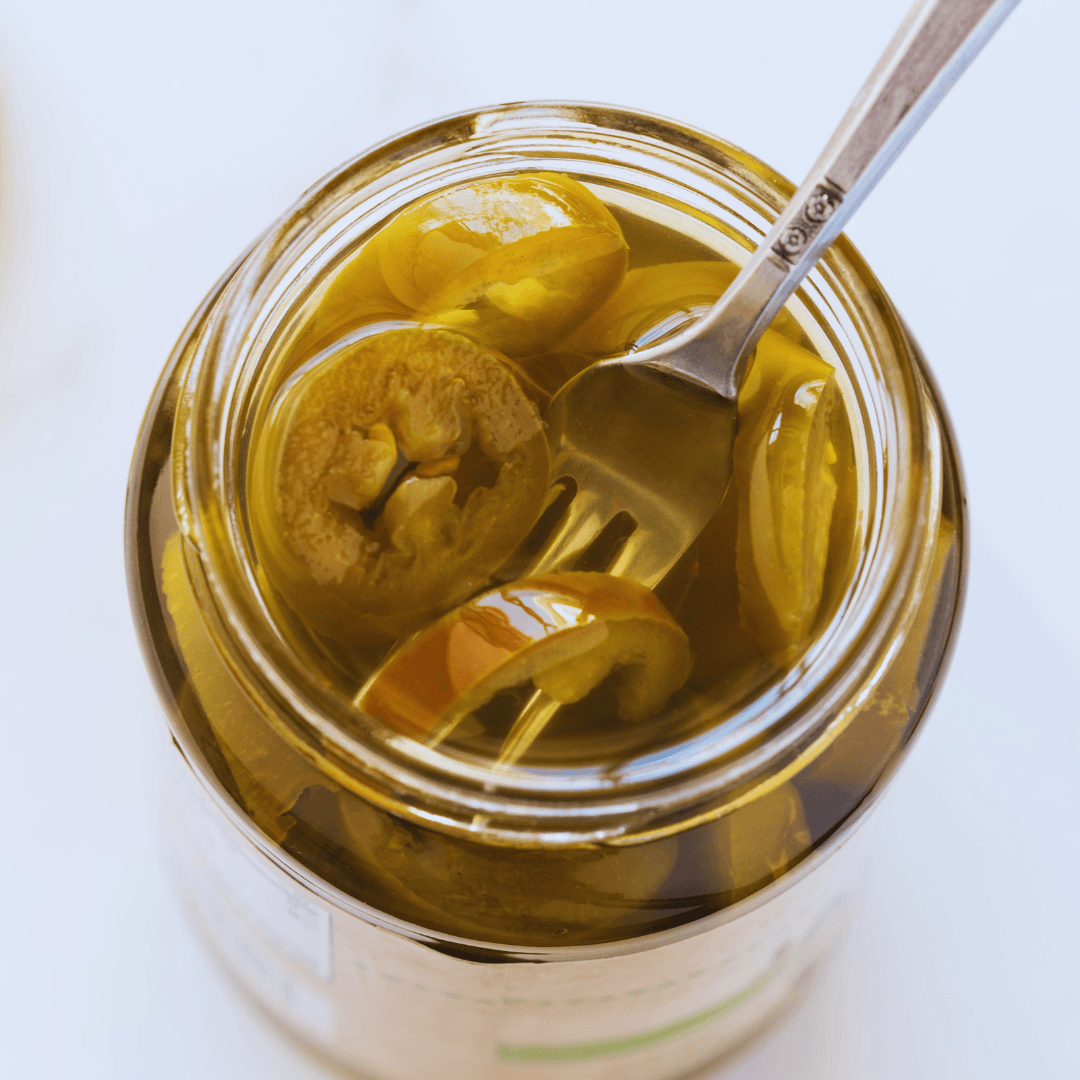
16. Pickled Jalapeños
Fermented jalapeños offer spicy, tangy flavour and beneficial probiotics. These zesty peppers can be added to tacos and salads or used as toppings for various dishes, enhancing flavour while supporting gut health.
The fermentation process preserves the jalapeños and increases their digestibility, making them a delicious and gut-friendly addition to meals for those who enjoy a kick.
Benefits Of Consuming Vegan Probiotic Food
Including vegan probiotic items in your diet is a holistic way to improve your general health, not simply to help with digestion.
These plant-based probiotic sources offer a powerful combination of gut-friendly bacteria and essential nutrients without the need for animal products.
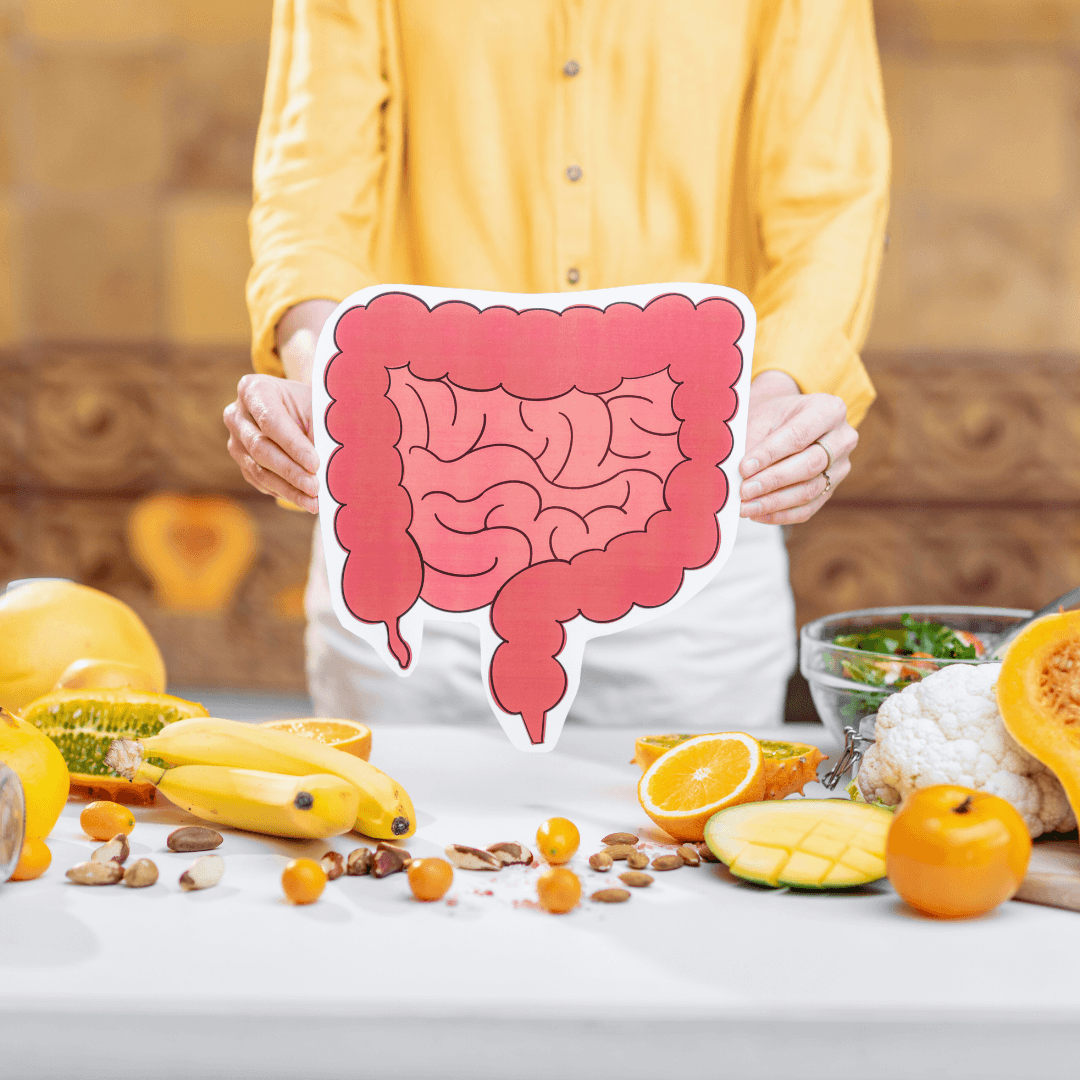
1. Improved Digestion
Probiotics support a healthy gut flora, facilitating better food digestion and reducing gastrointestinal discomfort such as gas, bloating, and constipation.
By supporting a diverse population of healthy bacteria, probiotics enhance overall digestive efficiency and ensure a healthy gut environment.
2. Boosted Immunity
Probiotic-rich food strengthens the immune system by optimizing the gut microbiome. Since much of the immune system resides in the gut, maintaining a healthy bacterial balance helps the body fight harmful pathogens and reduces the likelihood of infections and illnesses.
3. Enhanced Nutrient Absorption
Probiotics enhance the body's capacity to absorb important nutrients from a diet, such as B vitamins, calcium, and magnesium.
A healthy gut supports food's optimal breakdown, ensuring nutrients are absorbed efficiently and promoting better overall nutrition.
4. Reduced Inflammation
Probiotics help reduce inflammation by supporting a healthy gut barrier and promoting anti-inflammatory bacteria. This is especially helpful for those who suffer from diseases like irritable bowel syndrome (IBS) since it helps calm the digestive tract and reduce symptoms like pain and bloating.

5. Better Mental Health
The gut-brain connection highlights how gut health impacts mood and mental well-being. Probiotics help maintain this link by encouraging the creation of serotonin, which can lessen anxiety and depression, enhance stress management, and provide emotional and mental equilibrium.
6. Weight Management
A healthy gut microbiome, supported by probiotics, can improve metabolism and regulate appetite, aiding in weight management.
Probiotics may lessen food cravings and improve the body's capacity for effective calorie burning, which can aid in maintaining a healthy weight.
7. Detoxification
Probiotic food assists the body’s natural detoxification by promoting healthy digestion and eliminating toxins and waste. This supports liver function and helps cleanse the body, reducing toxic buildup and improving overall health.
8. Lactose-Free Gut Health
Vegan probiotics offer all the digestive and immune benefits of traditional probiotics without dairy. This makes them a great option for people with lactose intolerance or those following plant-based diets, ensuring a healthy gut without discomfort from dairy.
9. Supports Heart Health
Probiotics may lower LDL (bad) cholesterol levels and blood pressure, contributing to better cardiovascular health. They lower the risk of heart disease by improving lipid profiles and aiding in the breakdown of bile acids. Probiotics can significantly contribute to heart well-being by preserving a healthy gut microbiota.
10. Balanced Blood Sugar
Probiotics can enhance insulin sensitivity and improve blood sugar regulation, benefiting individuals with or at risk for type 2 diabetes.
Probiotics investigate healthy gut microbiota and influence glucose metabolism to promote more stable blood sugar levels and a lower risk of diabetes-related complications.

11. Healthier Skin
Healthy skin can result from a balanced gut flora because it lowers inflammation and encourages hydration. Probiotics help manage conditions like acne, eczema, and rosacea by supporting skin barrier function and mitigating inflammation, ultimately contributing to a clearer, more resilient complexion.
12. Increased Energy
Probiotics aid in producing B vitamins crucial for energy metabolism. Probiotics can help reduce fatigue and increase energy levels by enhancing digestion and nutrition absorption. This will make you feel less sluggish and more alive throughout the day.
13. Hormonal Balance
A healthy gut plays a vital role in hormone regulation, influencing the balance of hormones such as estrogen and cortisol.
Probiotics can alleviate symptoms of hormonal imbalances, including mood swings and bloating, by promoting a balanced gut environment that supports overall hormonal health.
14. Improved Oral Health
Probiotics help maintain a healthy balance of oral bacteria, reducing the risk of gum disease, cavities, and bad breath. By promoting beneficial bacteria, probiotics contribute to oral hygiene, improving overall dental health and reducing inflammation in the mouth.
15. Gut Healing
Vegan probiotic food can help repair a damaged gut lining, which is essential for preventing leaky gut syndrome. Probiotics reinforce the intestinal barrier, encourage healing, and enhance long-term digestive health by fostering the growth of beneficial bacteria, all of which enhance overall wellness.

16. Enhanced Longevity
Overall health is enhanced by a healthier gut, which may lengthen life. Probiotics help to maintain a resilient, healthy body by supporting important physiological processes like immune response, digestion, and nutrition absorption. This increases vitality and lengthens life.
17. Plant-Based Nutrients
Vegan probiotics are often derived from whole plant food, providing additional nutrients like fibre, antioxidants, and vitamins.
This combination enhances their health benefits, supporting digestive health and boosting overall wellness. Fibre promotes regular bowel movements, while antioxidants help combat oxidative stress, making vegan probiotics a nutritious choice for a balanced diet.
18. Diverse Flavour Profiles
Vegan probiotic food, such as kimchi, sauerkraut, and kombucha, offer a wide range of flavours and culinary experiences.
These diverse taste profiles make healthy eating enjoyable and exciting, encouraging individuals to incorporate these foods into their diets.
Experiments with different fermented foods can enhance meals while providing essential probiotics, making nutrition enjoyable and satisfying.
FAQ
1. How Often Should I Eat Probiotic Food?
Incorporating a small serving of probiotic-rich food daily can help maintain gut health. However, it’s essential to balance them with prebiotic food like garlic, onions, and bananas, which feed healthy gut bacteria.
2. Can I Get Enough Probiotics From Food Or Should I Take Supplements?
While it's possible to maintain a healthy gut through food alone, some people prefer supplements to ensure they get enough probiotics, especially if they have specific digestive issues. Always get medical advice before beginning any supplementation.
3. Is All Fermented Food Probiotics?
No, not all fermented food contains live probiotics. Some foods, like pickles made with vinegar, do not have live cultures. Look for products that specify “live” or “active cultures” on the label.
4. Is Probiotic Food Safe For Everyone?
Probiotic foods are safe and beneficial for most people. However, those with certain health conditions, such as a weakened immune system or severe digestive disorders, should consult a doctor before increasing their probiotic intake.
5. Can Probiotics Help With Bloating And Gas?
Yes, many people find that regular consumption of probiotics helps reduce bloating, gas, and other digestive discomforts by balancing gut bacteria and improving digestion.
6. What’s The Difference Between Probiotics And Prebiotics?
Prebiotics are indigestible fibres that nourish and support the growth of probiotics, which are live bacteria that are good for your digestive system.
7. Does Vegan Probiotic Food Taste Different From Non-Vegan Ones?
Vegan probiotic food may taste different depending on the ingredients used in fermentation. For example, sauerkraut has a tangy, slightly sour taste, while miso has a savoury, umami flavour. These unique flavours are often enjoyed by those who consume fermented food regularly.
8. Can A Vegan Diet Provide Me With Enough Probiotics?
Yes, there are many probiotic-rich vegan meals available, including fermented food like kimchi, sauerkraut, and nondairy yogurts. You can get important probiotics without using animal products by including these food in your diet.
9. Can Vegan Probiotics Help With Lactose Intolerance?
Yes, vegan probiotics can aid digestion and may help some individuals with lactose intolerance by promoting the growth of beneficial gut bacteria that support lactose breakdown.
Conclusion
Including vegan probiotic food in your diet is a tasty and practical approach to help your stomach. This food provide beneficial bacteria and enhance your meals with unique flavours and textures.
By embracing these nutritious options, you can improve digestion, boost immunity, and enjoy a vibrant lifestyle. Make these probiotic-rich food a staple for lasting health benefits and a happy gut.
I trust you enjoyed this article about the Top Vegan Probiotic Food For A Healthy Gut. Please stay tuned for more blog posts soon. Take care!
JeannetteZ
>>>Please click here to read my Vegan Travel Guides To World Destinations<<<
>>>Want To Learn How To Create Delicious, Cruelty-Free, Healthy AND 100% Vegan Meals? Try These Awesome Vegan Cooking Courses With A Free 7-DAY MEMBERSHIP<<<
Your Opinion Is Important To Me
Do you have thoughts, ideas, or questions? I would love to hear from you. Please leave me your questions, experiences, and remarks about the Top Vegan Probiotic Food For A Healthy Gut article in the comments section below. You can also email me at Jeannette@LivingTheVeganLifestyle.org.
Disclosure
This post may contain affiliate links. I earn from qualifying purchases as an Amazon Associate and other affiliate programs. Please read my full disclosure.
Here are links to some of my favourite articles:
Best Vegan Restaurants In Pensacola
Breakfast Recipes For A Plant-Based Diet

